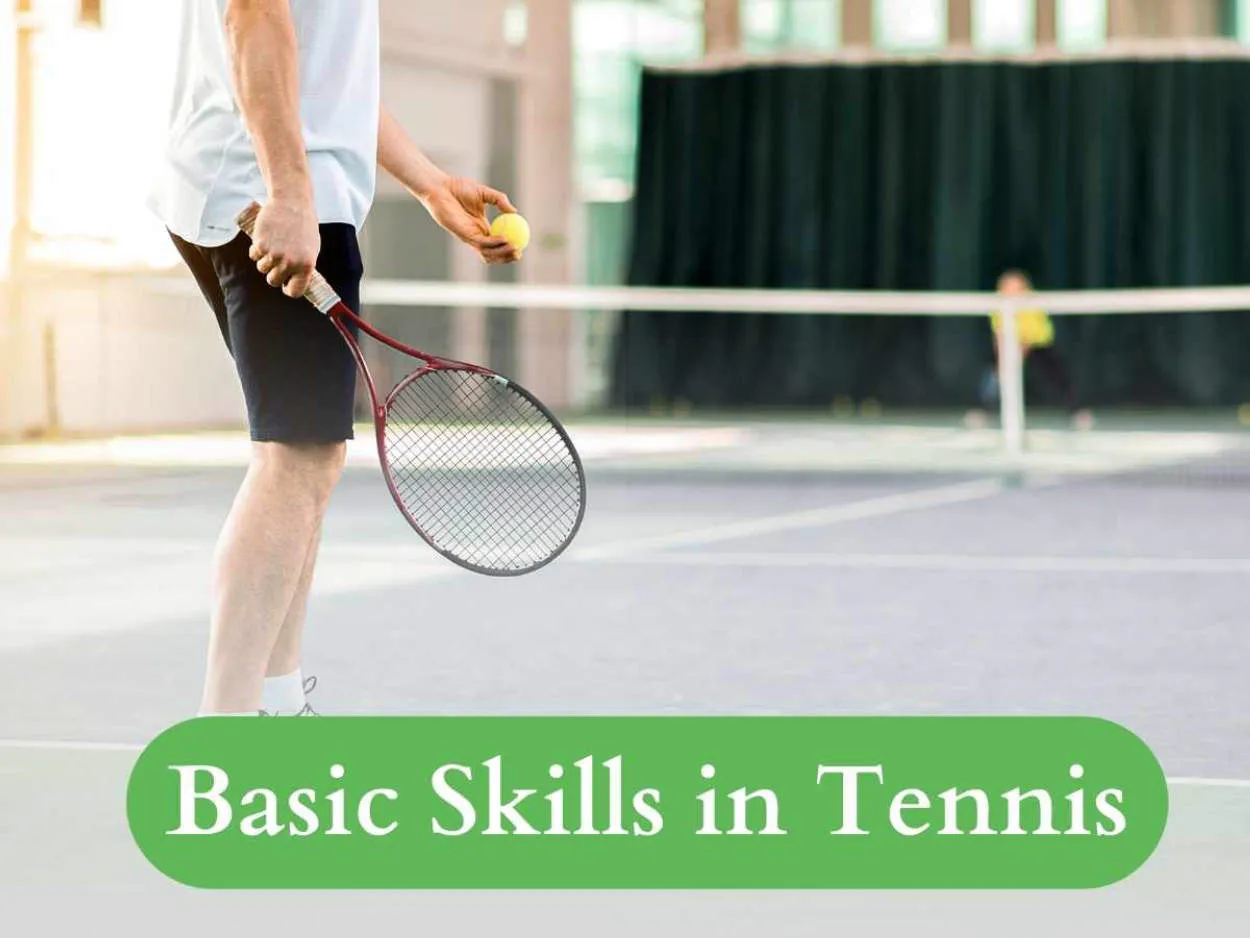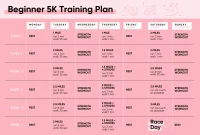Tennis Skills Development: From Novice to Pro
Fundamental Skills for Beginner Tennis Players
Tennis is a popular sport that requires not only physical fitness but also fundamental skills to excel in the game. Whether you’re a beginner or looking to develop your skills further, mastering the basics is essential. Here are some fundamental skills every beginner tennis player should focus on:
-
Proper Grip:
The first step to becoming a proficient tennis player is to learn the correct grip. The most common grip is the Eastern grip, where your index knuckle is placed on the third bevel of the racket handle. This grip allows better control and flexibility while hitting different shots.
-
Forehand Stroke:
Mastering the forehand stroke is essential in tennis. It involves swinging the racket with a closed stance and hitting the ball with the dominant hand’s palm facing the net. Practice proper body rotation and timing to generate power and accuracy in your shots.
-
Backhand Stroke:
The backhand stroke can be performed using either a one-handed or two-handed technique. It requires coordination and control to hit the ball accurately. Pay attention to footwork, body positioning, and timing to execute a solid backhand stroke.
-
Serve:
The serve is the most important shot in tennis, as it starts every point. Focus on developing a consistent serve with proper technique. Start with a basic flat serve, then progress to more advanced techniques like topspin or slice serves.
-
Volleys:
Volleys are shots played near the net, usually in response to the opponent’s weak return. Practice your volleying skills to increase your ability to finish points quickly. Work on footwork, hand-eye coordination, and maintaining a solid stance while volleying.
-
Footwork:
Footwork is crucial in tennis, as it allows players to move swiftly and efficiently around the court. Practice agility drills, side-to-side movements, and split-step techniques to improve your footwork. This will help you react to shots quicker and maintain balance during the game.
Remember, mastering these fundamental skills takes time and practice. As a beginner, focus on one skill at a time and gradually incorporate them into your overall game. With dedication and perseverance, you can progress from a novice tennis player to a skilled pro.
Techniques to Improve Your Tennis Game
Tennis is a sport that requires skill, focus, and strategy. Whether you are a novice or aspiring to become a professional player, there are several techniques that can help improve your game.
1. Develop your serve
The serve is a crucial shot in tennis, as it sets the tone for the point. Practice your serve regularly, focusing on accuracy, power, and variety. Experiment with different grips and toss heights to find what works best for you.
2. Master your footwork
Good footwork allows you to move quickly and efficiently around the court. Practice agility drills, such as ladder drills and cone exercises, to improve your speed and balance. Work on your split step, which helps you react quickly to your opponent’s shots.
3. Improve your forehand and backhand
The forehand and backhand are fundamental strokes in tennis. Take time to work on your technique, focusing on proper grip, swing path, and follow-through. Practice hitting both cross-court and down-the-line shots to expand your shot selection.
4. Enhance your volleys and overheads
Good net play can give you an advantage in matches. Practice volleys and overheads, paying attention to your positioning, racket preparation, and timing. Develop soft hands for delicate touch shots and power for strong smashes.
5. Work on your mental game
Tennis is not just physical; it requires mental strength as well. Practice visualization techniques to improve focus and enhance your ability to stay calm under pressure. Develop strategies to handle challenging situations and maintain confidence throughout a match.
6. Play matches and seek feedback
Apply your skills in real match situations by playing regularly. Seek feedback from coaches, trainers, or more experienced players to identify areas for improvement. Analyze your strengths and weaknesses, and tailor your practice sessions accordingly.
7. Stay physically fit
Tennis is a demanding sport that requires strength, endurance, and flexibility. Incorporate a regular fitness routine into your training regimen, including cardiovascular exercises, strength training, and stretching. A strong and fit body will help you perform better on the court.
By incorporating these techniques into your training routine, you can enhance your tennis skills and progress from a novice player to a more professional level. Remember to practice consistently and have fun while improving your game!
Advanced Strategies for Competitive Players
When it comes to tennis skills development, moving from a novice to a pro requires dedication, practice, and an understanding of advanced strategies. Here are some key strategies that competitive players should focus on to take their game to the next level:
1. Mastering Court Positioning
One important aspect of advanced tennis is knowing where to position yourself on the court. By strategically moving closer to the net or staying back, depending on the situation, you can gain an advantage over your opponent. Develop an awareness of court positioning and practice it consistently to improve your game.
2. Developing a Strong Serve
A formidable serve can give you a significant edge in matches. Work on developing a powerful and accurate serve, focusing on techniques such as proper grip, toss, and follow-through. Additionally, mastering different types of serves, like flat, slice, and kick serves, will allow you to keep your opponents guessing.
3. Enhancing Footwork and Speed
Quick and efficient footwork is crucial for a competitive player. Practice agility drills and footwork exercises to improve your speed, acceleration, and lateral movement. Being able to quickly reach the ball and recover faster will give you an advantage on the court.
4. Developing a Variety of Shots
Adding variety to your shots can keep your opponents off balance. Work on perfecting shots like topspin forehands, backhand slices, volleys, and drop shots. Having a diverse range of shots will allow you to adapt to different situations during a match and keep your opponents guessing about your next move.
5. Analyzing Opponents and Adapting Strategies
Analyzing your opponents’ playing style and weaknesses is crucial. During matches, observe their patterns, strengths, and weaknesses, and adjust your game plan accordingly. Being able to adapt your strategies mid-match can give you a competitive edge.
6. Mental Toughness and Focus
Developing mental toughness is key to performing at your best under pressure. Train your mind to stay focused, maintain a positive attitude, and overcome challenges. Practice mindfulness techniques, visualization exercises, and mental drills to enhance your mental resilience on the court.
Mental and Physical Preparation for Tennis
When it comes to developing tennis skills, it is essential to focus not only on the technical aspects of the game but also on mental and physical preparation. Both mental resilience and physical fitness play a crucial role in achieving success on the tennis court. Here are some key points to consider:
Mental Preparation:
- Stay Focused: Developing mental discipline is vital for tennis players. Stay fully present during practice and matches, focusing on each shot, point, and game.
- Visualize Success: Create a mental image of yourself executing successful shots and winning matches. By visualizing success, you can boost your confidence and improve your performance.
- Manage Pressure: Tennis can be a high-pressure sport. Learn to control your emotions and handle stress effectively. Practice deep breathing and positive self-talk to stay calm and composed in intense situations.
Physical Preparation:
- Strength and Conditioning: Tennis requires a good level of overall fitness. Incorporate strength training exercises to improve your power and stability. Additionally, focus on cardiovascular exercises to enhance endurance on the court.
- Flexibility: Flexibility is essential for preventing injuries and improving your range of motion. Include stretching exercises in your training routine to maintain optimal flexibility.
- Agility and Footwork: Quick and precise footwork is a key component of tennis. Incorporate agility drills and footwork exercises into your training to improve your on-court movement and reaction time.
By paying attention to both your mental and physical preparation, you can enhance your tennis skills and progress from a novice player to a professional level. Remember, practice and consistency are key to continuous improvement. So, start working on your mental resilience and physical fitness to unlock your full potential on the tennis court!
Learning from Professional Tennis Players
In the world of tennis, professional players serve as a great source of inspiration and learning for those looking to elevate their skills. Observing their techniques and approach to the game can provide valuable insights for aspiring players aiming to develop from novice to pro. Here are a few key aspects to consider when studying professional tennis players:
1. Technical Skills
Professional tennis players possess exceptional technical skills that have been honed through years of practice and dedication. They demonstrate perfect form in their strokes, footwork, and positioning. To improve your own tennis skills, focus on mastering the fundamental techniques such as forehand, backhand, serve, and volley. Pay attention to the grip, timing, and body mechanics utilized by the pros.
2. Physical Fitness
Fitness plays a crucial role in a professional tennis player’s game. Their intense training routines enhance their agility, strength, speed, and endurance. Incorporate regular cardiovascular exercises, strength training, and flexibility exercises into your training regimen to improve your overall physical fitness and stamina on the court.
3. Mental Toughness
Professional tennis players demonstrate exceptional mental toughness amidst intense competition. They remain focused, stay positive, and exhibit strong resilience even in challenging situations. Work on developing mental fortitude, concentration, and the ability to handle pressure during high-stakes matches. This mental aspect of the game is equally important as physical skills.
4. Strategy and Tactics
Strategy and tactics are vital components of a professional tennis player’s game. They possess a deep understanding of their opponents’ weaknesses and strengths and use effective tactics to exploit them. Study different strategies and adapt your game plan based on various scenarios. Analyze matches, learn from professional players, and apply their approaches to your own game.
5. Constant Learning and Adaptation
Professional tennis players never stop learning. They constantly seek to improve their skills and stay up to date with the latest developments in the game. Embrace a growth mindset, be open to learning, and continuously adapt your techniques and strategies. Watch matches, attend training sessions, and seek guidance from experienced coaches to stay on the path towards development.
Conclusion
In conclusion, developing tennis skills from novice to a professional level takes dedication, practice, and effective coaching. It requires a combination of technical ability, physical fitness, mental resilience, and strategic thinking. By following a structured training program, setting goals, and continuously improving weaknesses, individuals can progress in their tennis journey and increase their chances of becoming a professional player.




